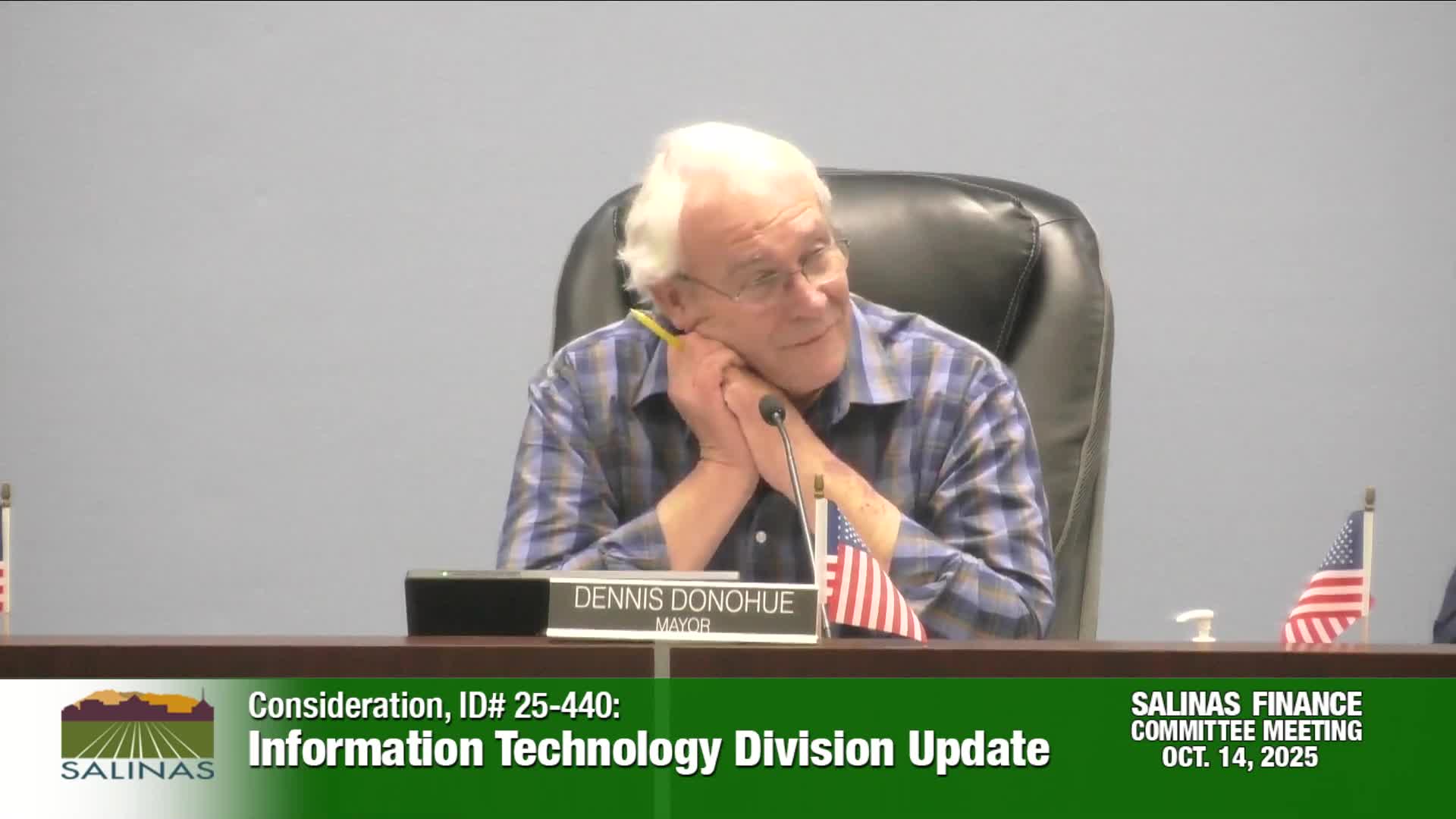Salinas IT division details cybersecurity upgrades, AI policy and planned office move
Get AI-powered insights, summaries, and transcripts
Subscribe
Summary
Information Systems Manager Carlos Ortega briefed the finance committee on Salinas' IT work plan, cybersecurity controls, AI-use policy, help-desk metrics and an office relocation timetable; councilmembers asked about license-plate readers, privacy safeguards and budget needs for innovation.
Carlos Ortega, information systems manager for the City of Salinas, told the Finance Committee on Oct. 14 that the Information Technology Division has made several infrastructure and governance improvements, is implementing cybersecurity best practices and has adopted an AI use policy while continuing to support citywide applications and services.
Ortega said the IT division's operating budget for fiscal 2024–25 is $4,830,000, the team comprises 14 staff members and the division supports 23 facilities and more than 700 staff. As part of the year's work, IT completed 12 projects from its annual work plan and identified 28 projects for the portfolio; 24 were incorporated into the work plan, eight have started and two were completed.
"Our vision encompasses three main principles: meeting technological risk and service demands through sound planning and cyber hygiene, adopting a culture that promotes teamwork, and embracing innovation to improve overall service delivery," Ortega said.
Ortega described cybersecurity work including adoption of the Center for Internet Security (CIS) Controls, staff awareness training, patch management and disaster-recovery and incident-response planning. He also said the city has implemented an AI and technology use policy to guide deployments.
Help-desk and service metrics cited by Ortega included 3,775 support calls or tickets and 2,980 help-desk calls during the year with an overall satisfaction rate of 92 percent. Ortega said larger, infrastructure-related issues take longer to diagnose and resolve, and that many smaller, isolated problems are addressed quickly.
Councilmembers asked for concrete examples of AI and related technologies. Ortega said license-plate-reader systems are used primarily for investigations and real-time public-safety follow-up, not for stationary code-enforcement tasks such as routine parking enforcement. He warned that privacy and operational limits apply and that the city must have clear controls. "We have to have some real checks and balances to that and really understand the technology," Ortega said.
On facilities, Ortega said the IT team will move in two phases to 65 West Salazar: roughly half of the team by the end of the year and the remainder in the first quarter of 2026.
Councilmembers stressed continuing investment in cybersecurity and reserved funds for testing new technologies. Councilmember Margaret D'Arrigo called the department "very important" to city operations; other members asked staff to present AI use cases by department so the council can evaluate costs and benefits.
Ending: Ortega said IT will continue quarterly governance reviews, report on project progress and return with requests for resources or policy guidance as needed.
